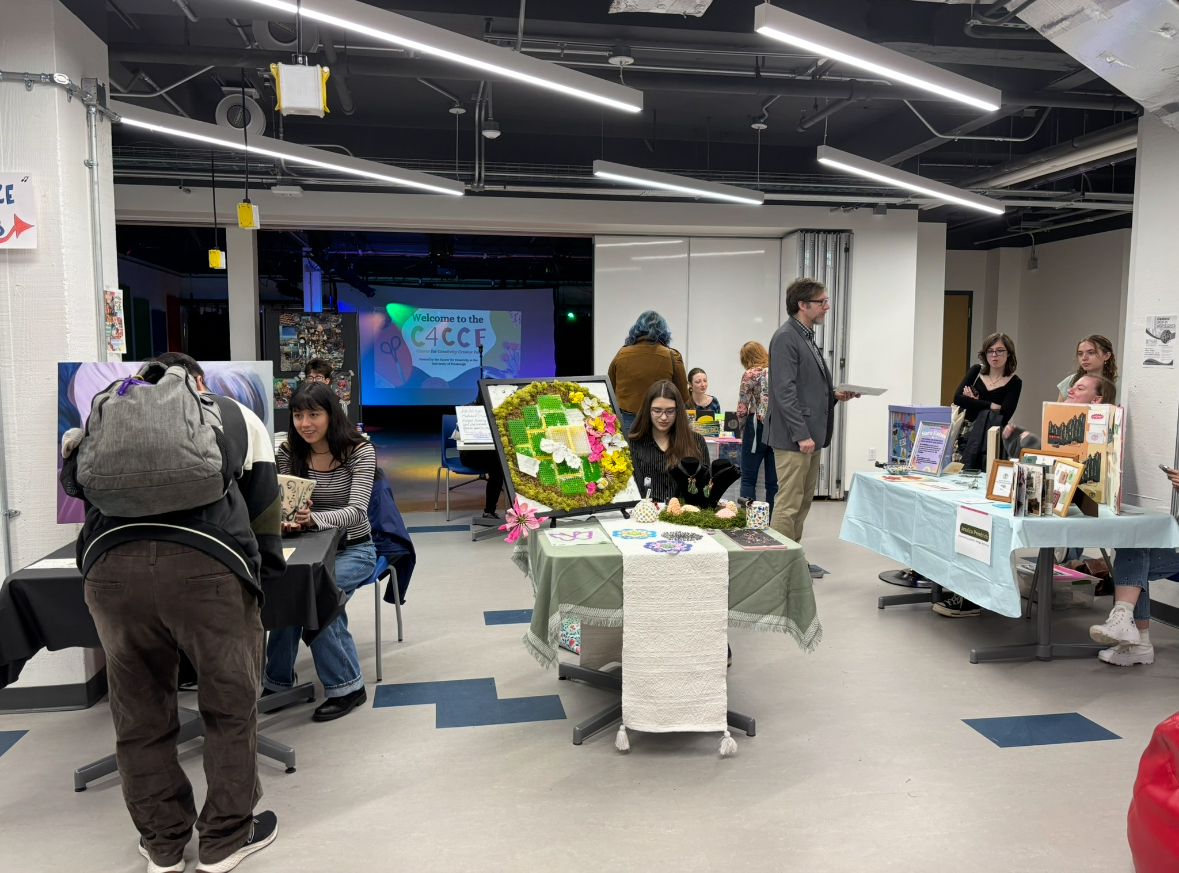Editorial: Outside the Classroom Curriculum a guide to success?
August 25, 2008
‘ ‘ ‘ Most career-minded students know that there’s more to the college experience than just… ‘ ‘ ‘ Most career-minded students know that there’s more to the college experience than just academics. Success means being able to not only boast an impressive GPA, but also a notable resume of extracurricular work. It’s one of the only ways a student can try to stand out as a prospective employee. ‘ ‘ ‘ Thankfully, Pitt officials understand the importance of being a well-rounded student. What they don’t seem to understand is how to encourage a student to become one. ‘ ‘ ‘ Officials at Pitt’s Office of Student Affairs spent the past two years developing the Outside the Classroom Curriculum, a brand new program that, with a structured set of extracurricular activities, aims to provide a complement to a student’s academic studies. The goal is to develop a well-rounded student and to guide him to professional success, Dean of Students Kathy Humphrey told The Pitt News. ‘ ‘ ‘ Developed from goals established by the Office of the Provost, the OCC program has honorable and important intentions, but it also has many holes. Students who decide to sign up for it must take part in a certain number of activities or events that meet the program’s nine key areas: leadership development, career preparation, communication skills, healthy lifestyle, understanding diversity, sense of self, community participation, appreciation for the arts and service to others. ‘ ‘ ‘ The program does not commit students to any single organization where they can learn to work their way up in much the same way as they would in the real world. Instead, students can fulfill their OCC requirements by attending various events or lectures. And while being an active member in a student organization is rewarded by the OCC, it’s not required. ‘ ‘ ‘ When attending events, like lectures, students swipe their Pitt ID cards on a scanner that records their attendance. That information is then sent to an online transcript that keeps track of all the events students take part in. Students who participate in internships or other events not affiliated with the University must fill out a form detailing their participation and submit it to OCC volunteers who add in the information to the students’ transcripts, Humphrey said. Students can then print their OCC transcripts and submit them to employers. ‘ ‘ ‘ The online transcript aims to keep students organized, but it is largely unnecessary. Most students who actively take part in significant extracurricular activities already know to include them in their resumes. ‘ ‘ ‘ When students complete the program, they receive a green cord at graduation. But aside from that, there is no real incentive to take part in the OCC. ‘ ‘ ‘ Humphrey said the OCC partly aims to improve the University’s student retention rates. According to Humphrey, Pitt’s retention rate is 89.9, which means that 89.9 percent of freshmen graduate from the University. Humphrey wants that rate to be closer to 90. By committing students to such a program, she believes that students are more likely to feel attached to the Pitt community and to stick through to graduation. ‘ ‘ ‘ But there are other, more efficient ways of achieving this goal. ‘ ‘ ‘ The reason why students are leaving school might have much to do with the way Pitt’s advising process is structured. Because advisers meet with so many students, they are often unable to do much more than sign students up for classes. ‘ ‘ ‘ Without necessary information or encouragement from their advisers, students can lose motivation. This is why advisers should be like personal mentors. They should not only give students advice on what kind of academic route they should take, but also what kind of extracurricular route they should take in order to become well-rounded students. ‘ ‘ ‘ Students Affairs officials spent two years developing the OCC, Humphrey said. While Humphrey added that the only expense was the card scanners, the amount of time and energy devoted to creating the program could have been best spent elsewhere, perhaps on improving the advising process. ‘ ‘ ‘ The OCC is meant to be a road map, guiding students who wouldn’t normally participate in activities. But would those same students have the initiative to take part in this program? And if they do, would they find themselves getting used to guidance and be unprepared to navigate success after graduation? A key part of success is knowing how to be resourceful on your own. ‘ ‘ ‘ While we applaud the efforts of Pitt officials in developing the OCC, we believe that it takes much more to ensure students’ success.


